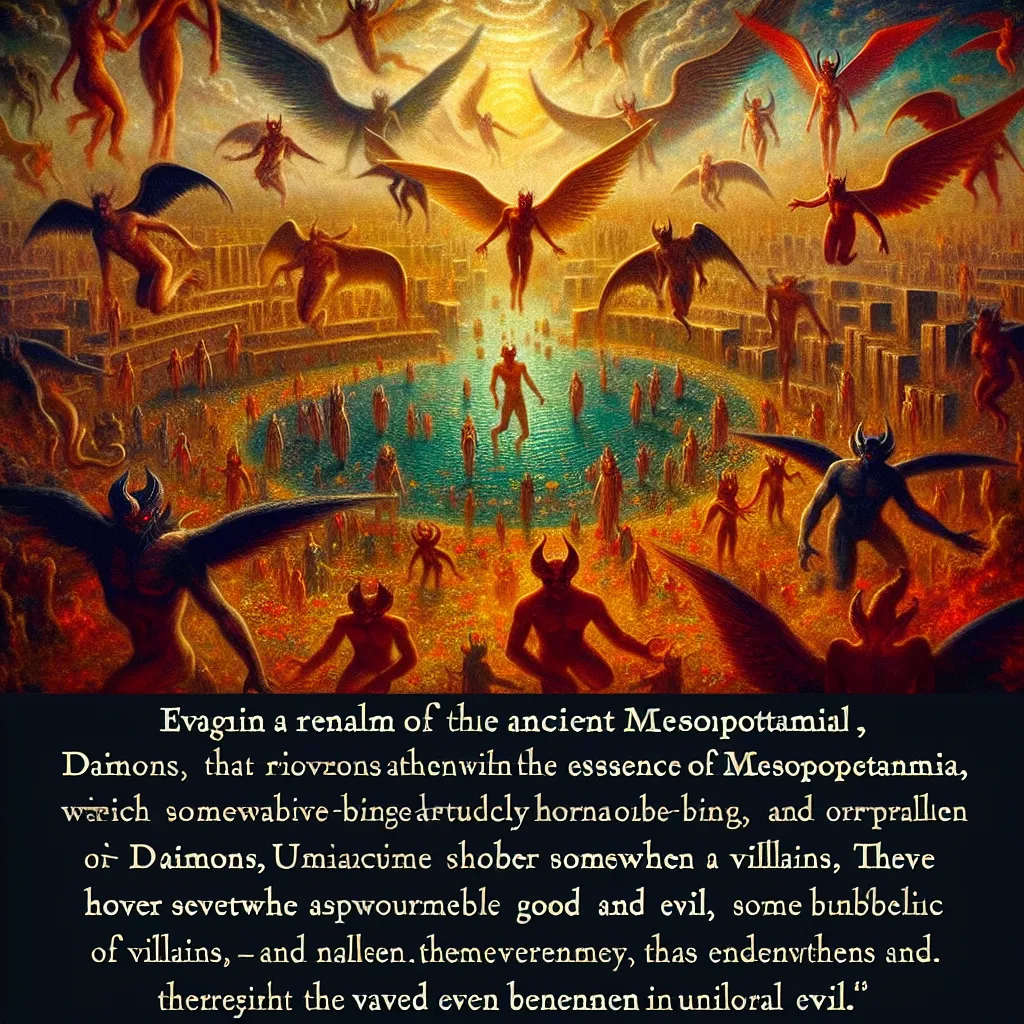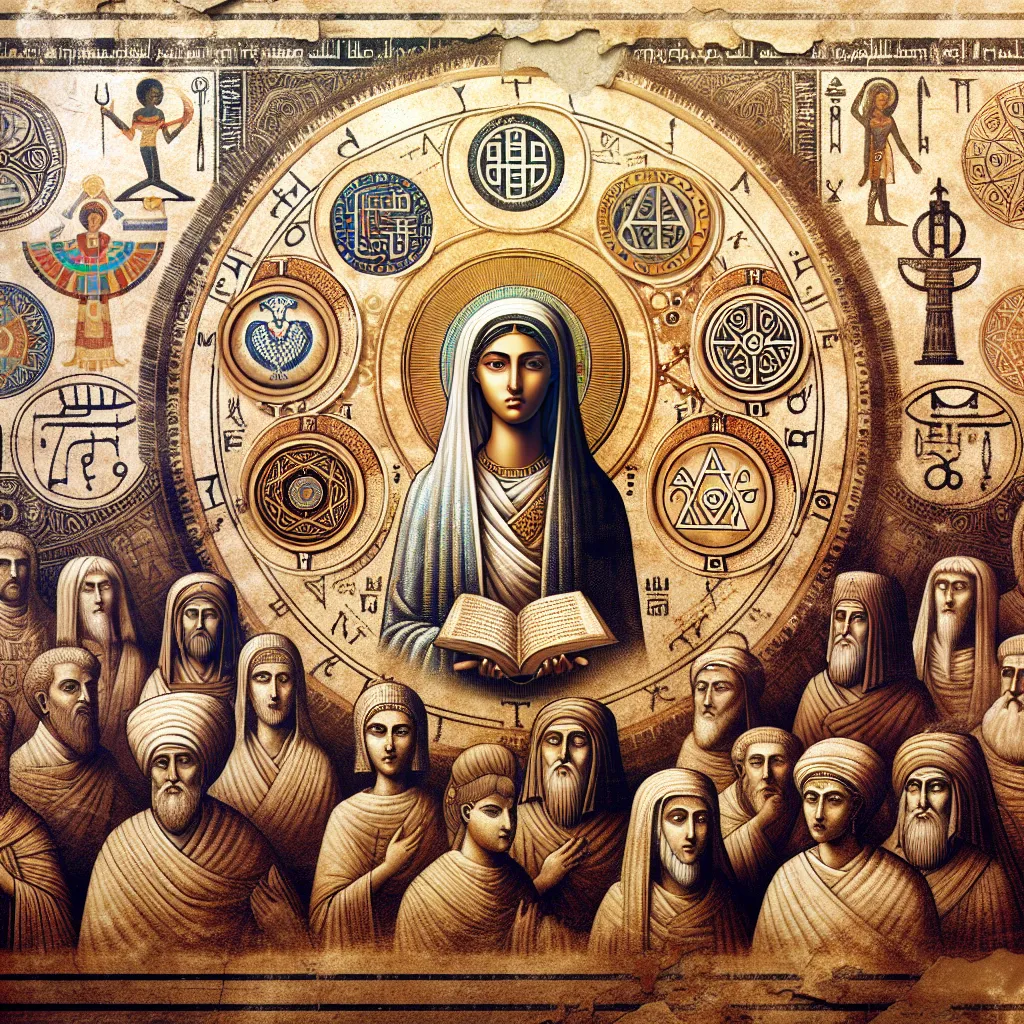Back in ancient Mesopotamia, demons were quite different from what we think of today. The modern idea of a demon as a purely evil entity, often linked with the devil and seeking to harm or possess humans, is a concept that really took shape with early Christian writers.
In pre-Christian times, people had a more nuanced view of demons. The word “demon” itself comes from the Greek term “daimon.” A daimon in ancient Greece wasn’t inherently good or evil. Daimons were spiritual beings that stood between gods and humans, playing various roles that could be beneficial or harmful.
So, while the idea of an evil daimon did exist, it was just one category of these mysterious entities. Daimons could be good, bad, or somewhere in between, making their identities and intentions much more complex than the solely evil demons we think of today.






